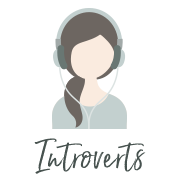How Getting More Sleep Will Improve Productivity + Happiness
/How many of us wear our sleep-deprived achievements as a badge of honor? Or reason with ourselves that getting just a few more tasks done is worth pushing our bedtime back just a little further... Even if you know how important sleep is, there's still a chance you're not prioritizing it highly... (I know I'm not!)
But what if you could achieve more in less time? What if you could feel happier while doing it?
Not only is this possible, but there are tons of scientific studies to back up the claims.
Today’s post is from Karen Broda, who blogs over at Strong and Smart. She helps strong, smart busy professional women get past the emotional and mental barriers that prevent us from reaching our wellness goals, which is a topic very close to my heart. Karen contacted me a few months ago and we knew we had to connect.
I also recently mentioned my love for the book The Sleep Revolution, so the timing of this post is perfect!
Karen breaks down how getting more sleep will improve productivity and happiness... and maybe even lead to that big promotion at work like it did for her! Or what about that creative breakthrough you've been waiting for?
We’ve Been Approaching Sleep Entirely the Wrong Way
Sleep is important. We know that 7-8 hours per night is supposedly the magic number, but who really gets that much each night? Between running your own business, seeing family and friends, and managing other life priorities, I’m sure you’ve managed on less sleep.
But what if I told you getting “enough sleep” isn’t just important, it’s crucial for your immediate and long term health? And what if you could actually get more done in a day if you slept longer? Preposterous? Maybe not….
My new found relationship with sleep
A few years ago I was always exhausted in the evenings, no energy to do much of anything after working all day. I figured this was just due to tough 6 am workouts followed by a day of work. But then the exhaustion every night led to a short temper, a consistently foggy mind, and frustration with being tired all the time (even on weekends)!
I decided to start ignoring my alarm to wake “naturally”... waking up when my body was ready to get up, not by blaring alarm. My new wake-up time started to become 7 am (over an hour later!) yet I still managed to fit in my workout, work a full day, plus have the time and energy to enjoy my evenings (and weekends!).
I was more enjoyable to be around, could easily smile all day long, and my brain became sharp again which led to a job promotion (yippee!). Was this emotional and career success really the result of a little extra sleep each day?
On average, the recommended optimal length of sleep is 7-9 hours (1), meaning actual sleep not, “lying in your bed contemplating the world’s problems for an hour” type of sleep. Now I'm sure you're thinking, "7-9 hours of sleep is great, but I CAN operate just fine on 6 hours of sleep. I never feel sleepy, and I am doing quite well for myself (I'm a smart gal!)".
Well consider this: only about 1% of the population can function properly with less than 6 hours of sleep (these people generally need 4-5 hours) (1). Maybe you’re not so special…
The best way to find out how much sleep you actually need is to do what I stumbled upon: the natural sleep experiment. Go to bed when you’re tired and wake up when you feel rested (do not use an alarm clock!). And if you wake-up at 3 am but don’t feel rested, go back to sleep until you do. You may be surprised that your optimal length is not 6 or even 7 hours, but rather 8 or 9. I now average 8.5 hours of sleep each night meaning I’m lying in bed for 9 hours.
So what if you consistently get less sleep than your optimal amount but you can function fine and never feel that sleepy…or nothing a cup of coffee can’t fix? Is it really that bad? Actually, it can be….
Can you really get by on less sleep?
In a 2003 sleep study, participants had to sleep for a designated amount of time each night for 14 days. One group had to sleep for 4 hours, the second group for 6 hours, the third group for 8 hours, and the fourth group couldn’t sleep at all (but for 3 nights only). The results were intriguing!
They found that participants who slept less than 8 hours per night (the 4 and 6-hour groups) performed considerably worse on cognitive tests than those who slept for the 8 hours. And these test results were equivalent to the results of the group that had no sleep for 2 nights!
What’s scarier is that moderate sleep restriction (i.e. any amount under your optimal amount) can impair your neuro-behavioral function that makes you feel “sleepy.” In other words, your body and mind are tired and performing at a poorer level, yet you don’t feel sleepy. (2)
As an entrepreneur, if you're not operating at your full capacity solving those complex business problems or coming up with creative ideas are going to be that much harder.
In another study run in a similar fashion, they found the participants that had 7 hours of sleep or less also exhibited this cognitive decline. However, after a few days of less than optimal sleep this decline stabilized. This means that yes, your body does attempt to adjust to the restricted sleep but it does so at a lower cognitive level; a new “normal” (3). This may explain why you feel “normal” after a few nights of little sleep but in fact, you are functioning at a lower cognitive level! You may not even notice this performance change since the effects are gradual over a few days, plus your brain may suppress that “sleepy” or tired feeling. Sounds pretty terrible to me.
But wait, there’s more!
In that same study, they found that the sleep-deprived group (5 and 7 hours of sleep per night) still had not recovered to full brain operational capacity after 3 nights of normal sleep (8 hours). (3)
So no, you can’t just “catch up on sleep” on the weekends. It’ll take you longer than 3 days to get back to your best brainy-self. And another downside to restricting sleep, you may even feel physically ill (I know I do!) since sleep deprivation has the same effect on your immune system as a disease or physical stress does (4).
Aside from not operating at your sharpest, short-term sleep deprivation (6 hours and less per night) also impairs your judgment, makes you retain fat, and is harder for your body to repair itself after a workout. And in the long term? Your risk of Alzheimer’s and dementia are significantly greater (6).
Increased Sleep = Increased Productivity
Phew! All of those consequences just for skipping out on precious, lovely sleep. I hope you now realize just how bad sacrificing your sleep really is. Not only does it affect your health but also your daily performance at work and life.
Let’s move on to the more positive stuff. Can we actually get more done in a day whilst getting more sleep? I know it worked for me, but let’s look at some science behind it.
1. Improved Problem Solving
Aside from letting our bodies and brains recover from the day, sleep also helps us create new brain cells (4) and consolidate and make connections across the info we received during the day (7).With a refreshed brain you can draw on those creative juices and develop that new product you’ve been stuck on. Or perhaps you were trying to solve a complicated business problem today? Get a good night’s sleep and overnight your brain can make the connections it needs to in order to solve it!
2. Move and Think Quicker
In those previous studies, it was also found that restricted sleep resulted in slower reaction time (3). If you get less than 7 hours of sleep you’re operating at a lower cognitive level and have a slower reaction time, so think how quickly your body and brain will move when you’re well rested!
You may have a never-ending “to do” list for the day, but at your cognitive-best, your brain will help you conquer that list in the smartest and most efficient way!
I know this works for me. I now have the energy and brain power to strategize and complete my to-do list every day with some spare time for Netflix. At work, think how valuable faster reaction time is. Quicker and smarter responses to tough questions can save you during a business pitch.
3. Happier mood
This point is my favorite. I don’t think we need scientific studies (although there are some) to figure out that more sleep equals a better mood. And we know happiness leads to so many positive outcomes in life (given the number of books written on happiness as of late)!
One study found that getting 7-9 hours of sleep each night results in higher self-esteem and optimism. (9) We know confidence is needed to succeed in business, so what better way to build that than with high self-esteem! My happy demeanor at work (and life) definitely played a role in me getting that job promotion.
Investing in sleep means investing in your happiness and success.
Not getting enough sleep is terrible but getting those additional hours of sleep is easier said than done.
So where do we start? Start simply. Start to make sleep a priority in your life. If I don’t get enough sleep my whole day is affected; lower energy, less focus, grumpier mood (all the things we touched on!). So I will purposely sleep-in an extra 30-60 minutes if I feel I need it because an extra 60 minutes is a small sacrifice compared to an entire day of low productivity and energy.
At the start, you may need to make a bit of sacrifice in order to prioritize sleep. For me, I had to rearrange my schedule slightly, such as moving my morning workout to the lunch hour so I could get extra zzz’s in the morning. It’ll be a bit of a pain at first but you’ll soon get into a groove and getting 7-9 hours will become a breeze!
A good thing to remember is to not get too caught up with the "numbers." Just because the average needs 7-9 hours doesn’t mean you need that exact amount every night. Some nights you may need more sleep if it was a mentally or physically taxing day. I can sleep for 9.5-10 hours after a few days of tough workouts and mental stress.
Sleep is important for the short and long term. Not only does it benefit your health but it also allows you to perform at your optimal level, because you want a successful business and life, right??
About Karen
Karen knows getting fit isn't just about the hard work in the kitchen and the gym but also having a bullet-proof mind. Interested in more ways to strengthen your mind (and body)? Check out her site, Strong and Smart. She shares even more valuable bits of info to her Strong and Smart crew (free to sign-up!).
IDFA Canada Bikini Pro, and 3-time, top 5-finisher with INBF Canada












